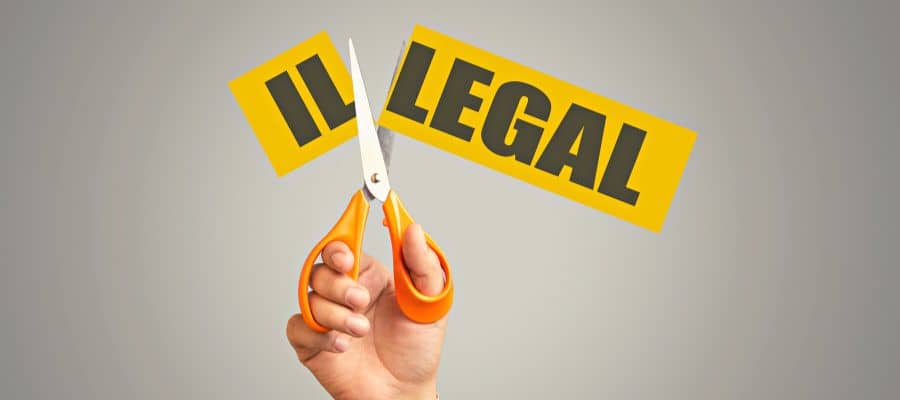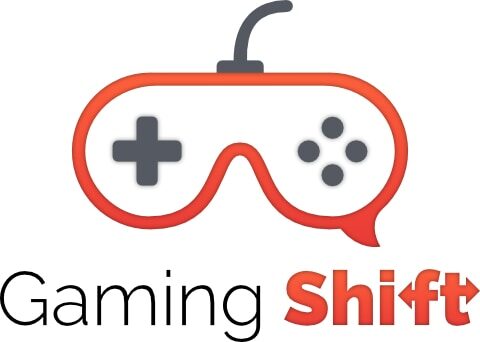Emulators like MAME have long been at the forefront of discussions regarding piracy, and the illegitimate use of copyrighted software. While MAME itself is an open-source framework distributed under the GNU General Public License, ROMs aren’t included in the download. And that’s where a lot of the confusion starts because many people are concerned about breaking software copyright laws when they play games on MAME.
So, are MAME games illegal? It largely depends on the game being emulated and its copyright status, i.e. whether the publisher still has ownership of the license. Some games are freeware or shareware, and can thus be distributed freely while others are abandonware which puts them into a grey zone of rights enforcement.
The discussion around the legality of emulation is a very convoluted one, with no well-defined laws prohibiting game emulation (unlike software piracy). It mostly comes down to individual companies and how one uses emulation. With that said, I must provide a disclaimer that nothing you read in this article should be considered legal advice- always adhere to your country’s copyright laws.
Are MAME Games Illegal?

If you are running backup files of games that you own, there should be no reason for concern as you legally own a copy. Most issues with legality start when you download ROMs from the internet. Games for which the publisher still owns the rights are technically protected by copyright law, and therefore should not be downloaded.
However, you’ll find that obtaining a legal copy of old 8 and 16-bit games can be very hard. You won’t always find them on eBay or in your local used games shop. And the company that holds the rights to that game might have closed shop long ago, which means they don’t have the means to enforce that copyright.
These companies won’t track down individual cases of copyright infringement that occur when some anonymous person downloads their decades-old software online. Besides, if you download from a Peer-to-Peer network (torrent), tracking becomes even harder (only your ISP can do that). So even if a company owns the copyright for a game released long ago, they likely won’t (or can’t) enforce it.
Because first of all, the amount of money they spend on the lawsuit won’t be worth it, for one video game copy. Unless the user in question was making money off illegal downloads by distributing copies on the commercial market to others. In this case, the illegal downloader could be looking at a very large fine (and multiple years in jail).
Then, there’s the matter of freeware and shareware. Freeware is software that is distributed under a free license (not the same as open source, which also gives away the source files). Shareware is software that’s distributed by the developer to a community of people, under a limited rights license (you can’t use it for commercial purposes).
If a game is categorized as shareware or freeware, you can download it with no issues. But you still shouldn’t make money off it by selling it to unaware consumers.
The Need For Emulation
One might ask why emulation is even needed, and that’s a pretty good question. The most obvious reason is to preserve old software for future generations of gamers. You might have played a game 15 years ago when you were a kid, but it has disappeared from the market.
It isn’t on steam, GOG, Epic, Origin, or any of the big online marketplaces. And you can’t find legal copies on sites such as Amazon or eBay. Maybe this game wasn’t very popular when it was released, and it didn’t perform well critically or commercially.
Online marketplaces like Steam won’t dedicate server space to niche old titles that nobody wants. Or maybe the developers/ publishers for that game went out of business. Maybe they forgot about that old game they made, and moved on to more commercially viable products that are easier to market to a wide audience.
For fans of games like that, emulation is the only way to enjoy something they once liked. Because nobody else cares about that game- not the publishers, not Steam, and certainly not the general gaming populace. The only people still interested in it are a niche community of fans, who create their own tools to enjoy it once more.
Emulation is also needed to play games for which the original hardware is no longer made. Let’s say your old PS2 finally gave up the ghost after 10 years of service. Now, how do you play Klonoa 2 or Jak 3?
There is no answer to that question, except for emulation. Sure, services like PS Now are a thing. But they provide an objectively worse experience than playing on native hardware (because they use a cloud-based emulation system).
PS Now only hosts a small fraction of all games available for the PS1, PS2, and PS3. And of that small fraction, you’ll find that most aren’t even titles that you like (everyone has different tastes). Plus, it only works with a good internet connection.
Why pay a subscription fee to play games that you already own? That’s why emulation is so good- it is free, and allows you to play the games you own without anyone else getting in the way. Emulation is truly the best method of preservation.
Are Emulators Legal?

Emulators like MAME can run games for a wide variety of consoles and home computers- PS1, PS2, N64, SNES, Apple II, Atari 2600, MSX 1, etc. However, is MAME (or any other emulator for that matter) legal? Yes, it is- MAME was built using open-source information on system hardware and some good old-fashioned reverse engineering.
Reverse engineering itself isn’t illegal and is protected under the fair use policy, so an emulator that uses reverse engineering wouldn’t be illegal. And if an emulator uses open-source information on the inner workings of a system or its microprocessor, that is perfectly legal too. The only time one might run into trouble is if the emulator developers stole internal files or copied the schematics of patented hardware.
Patents protect the implementation of an idea, rather than the idea itself. So the software implementation of a CPU shouldn’t fall under patent infringement since it uses a different method to achieve the same goals. This is a topic that was brought up in the Sony vs. Connectix case.
Is Emulating The Same As Pirating?
Not unless you pirated the game that is being emulated. If you own a legal copy of the game and created a backup- that can be run safely within your emulator without breaking copyright laws. And if the game is shareware or freeware, you aren’t breaking any copyright laws (unless you’re illegally distributing it for profit).
Downloading Retro Game ROMs
When you download a retro game ROM, make sure you are doing it from a safe archive/ website. One that’s well-regarded within the retro gaming community. Visit some forums, and do your research.
Because a file’s source is directly related to its chances of working smoothly in your emulator. Make sure the ROM you download is compatible with the version of MAME (or whichever emulator you use).
If a game is legally available for a tiny price via Steam or GOG and you can afford it- just get it the legal way. For ROMs of old games on hardware that’s no longer manufactured, the laws are muddy. Apply some common sense and you should be fine- just stay away from shady sites.
What is Abandonware, And Is It Legal?
Abandonware is software that has been abandoned by its original developer or publisher and hasn’t been officially supported for a long time. No patches, marketing, support, etc. It’s software that’s very old, from which the rights holder isn’t making any money.
But that doesn’t make the software legal to download for free. It just means that the enforcement of copyright laws for that particular game is non-existent. Either because the copyright holder has shut down or has forgotten about it (since it isn’t on the market anymore and doesn’t make money).
Unlike abandonware, freeware and shareware can be legally downloaded for free. That’s because their terms of use/ license explicitly state that the software can be distributed for free. Freeware includes games that are free to play.
Shareware is similar to freeware, but its source is more tightly controlled and there are certain limitations within the distribution license. Like no commercial use, free use up until a certain time, etc. Shareware comes in many flavors.
These include limited-time game demos/ trialware, ad-supported games, freemium games, etc. As long as a game is listed as shareware or freeware, you can download and emulate it to your heart’s content.
Conclusion
The laws surrounding video game emulation are quite complex, with many topics for which there is no clear answer or legal precedent. As such, it falls upon the end user to do their research and make sure that they won’t get into legal trouble for emulation. Most people use emulation to play abandonware or backup copies of games they already own.
However, those who engage in the commercial distribution of copyrighted material should refrain from doing so, due to the risk of severe legal action. The topics discussed in my article apply not just to MAME, but to every emulation platform out there.
Emulation is simultaneously a beautiful and controversial technology. But for the average user, its pros significantly outweigh its cons.
